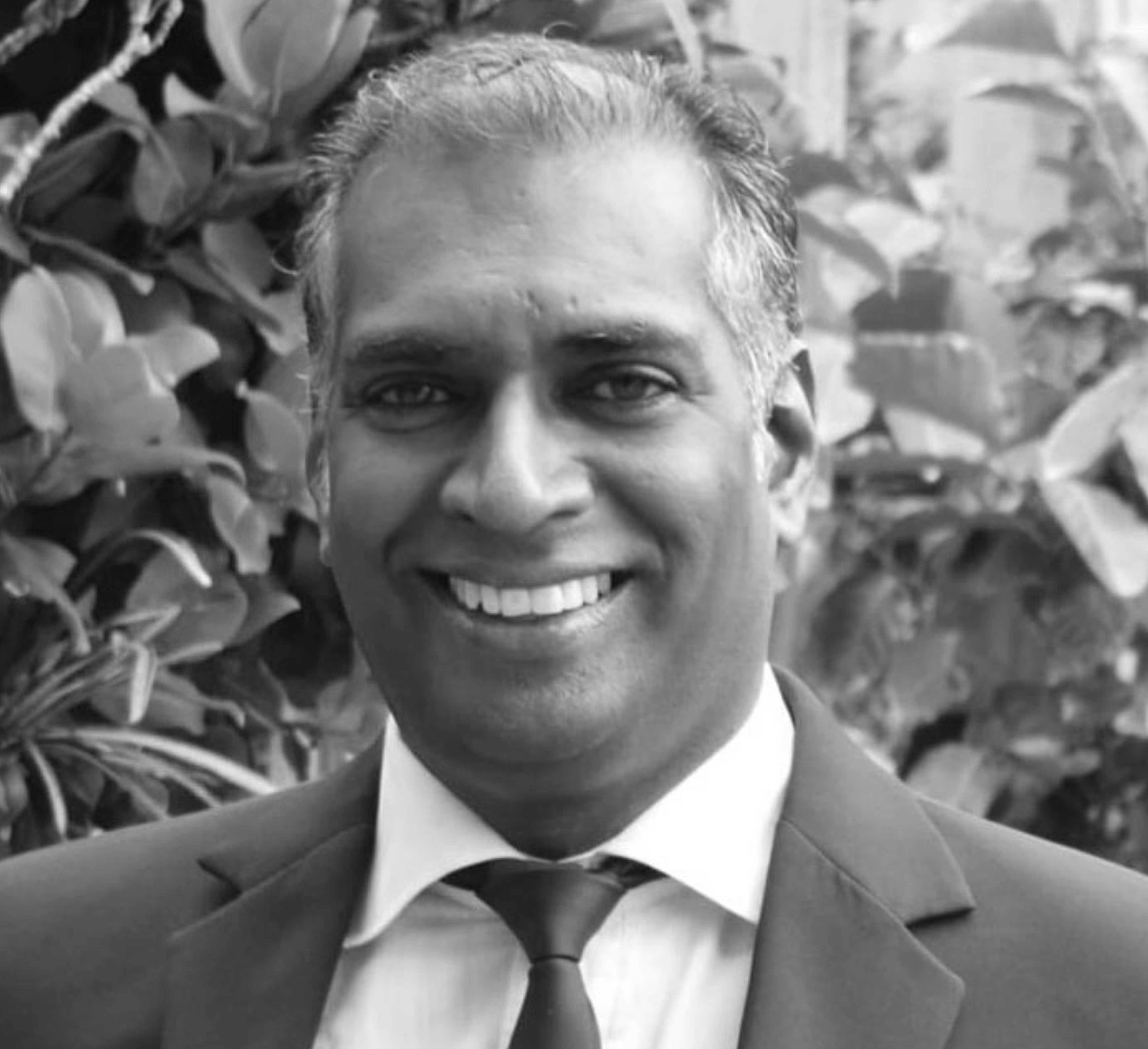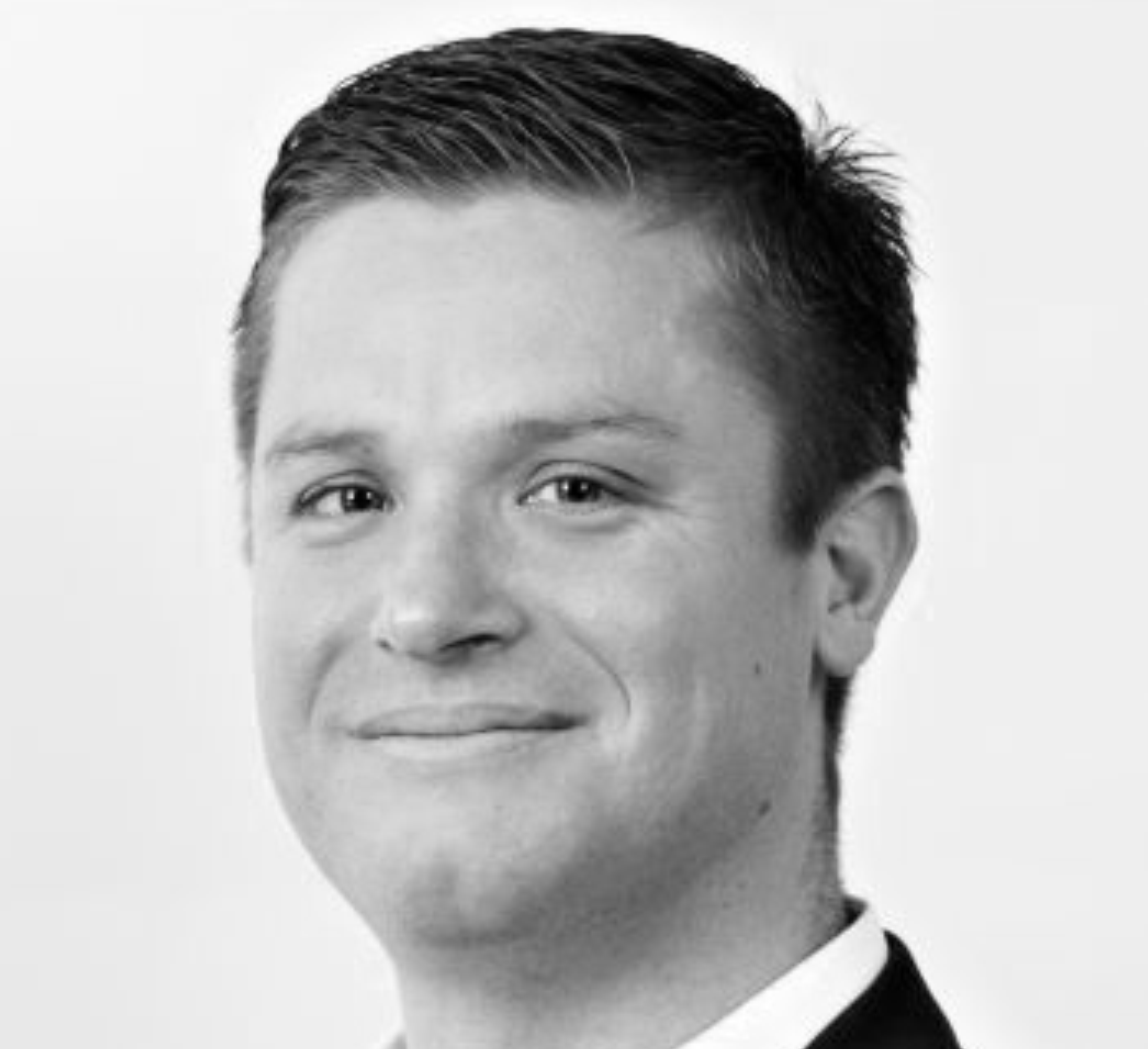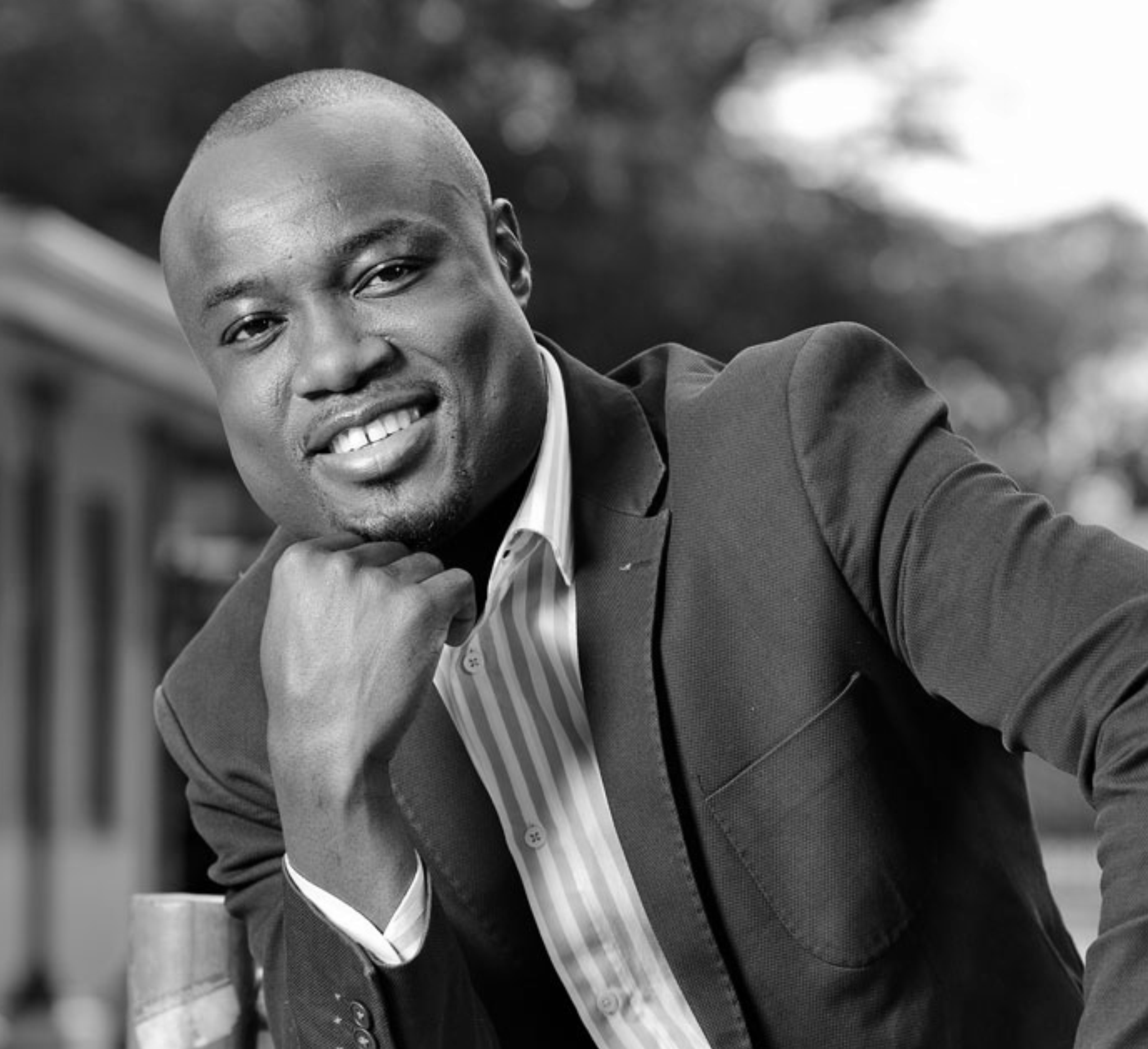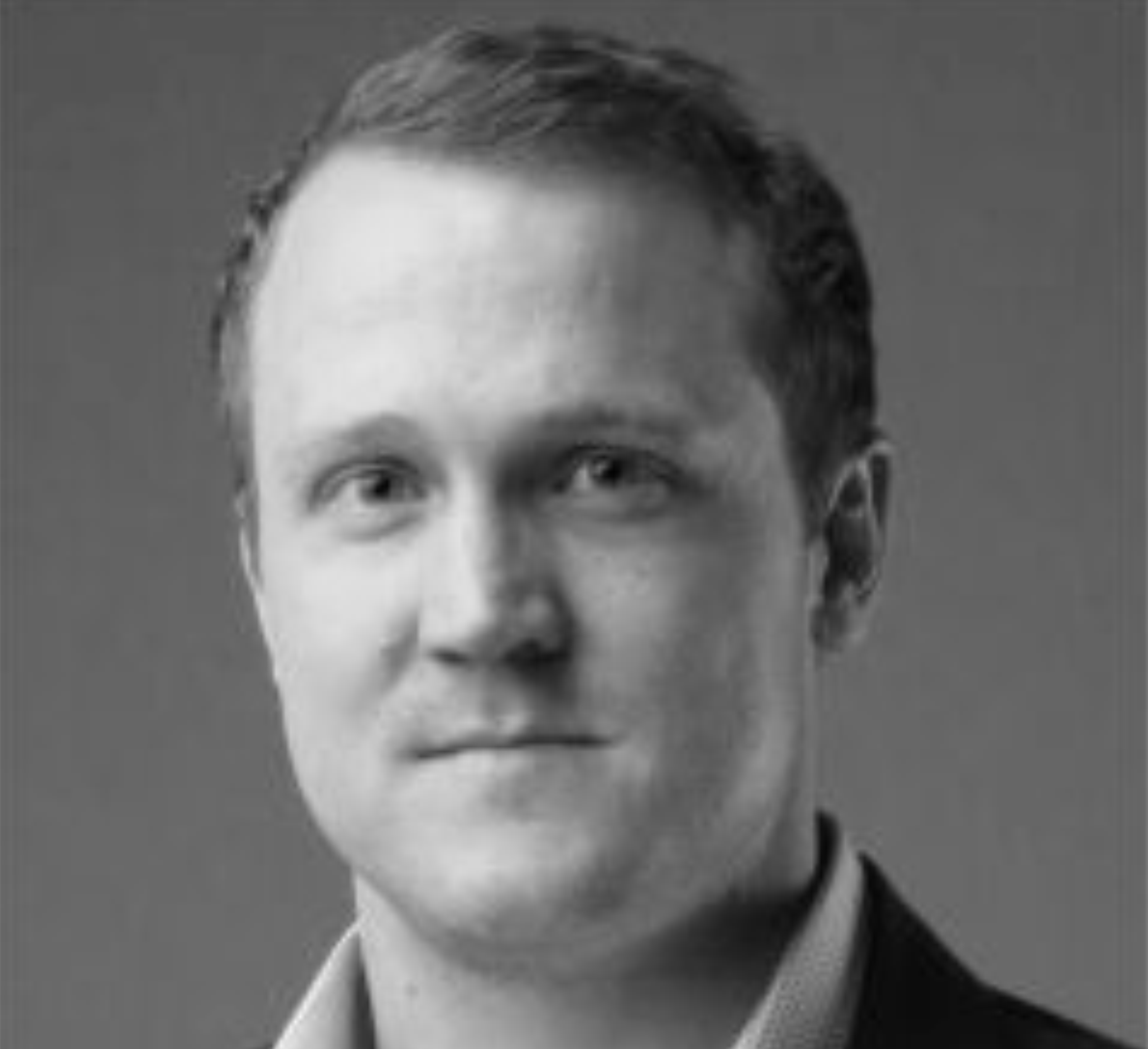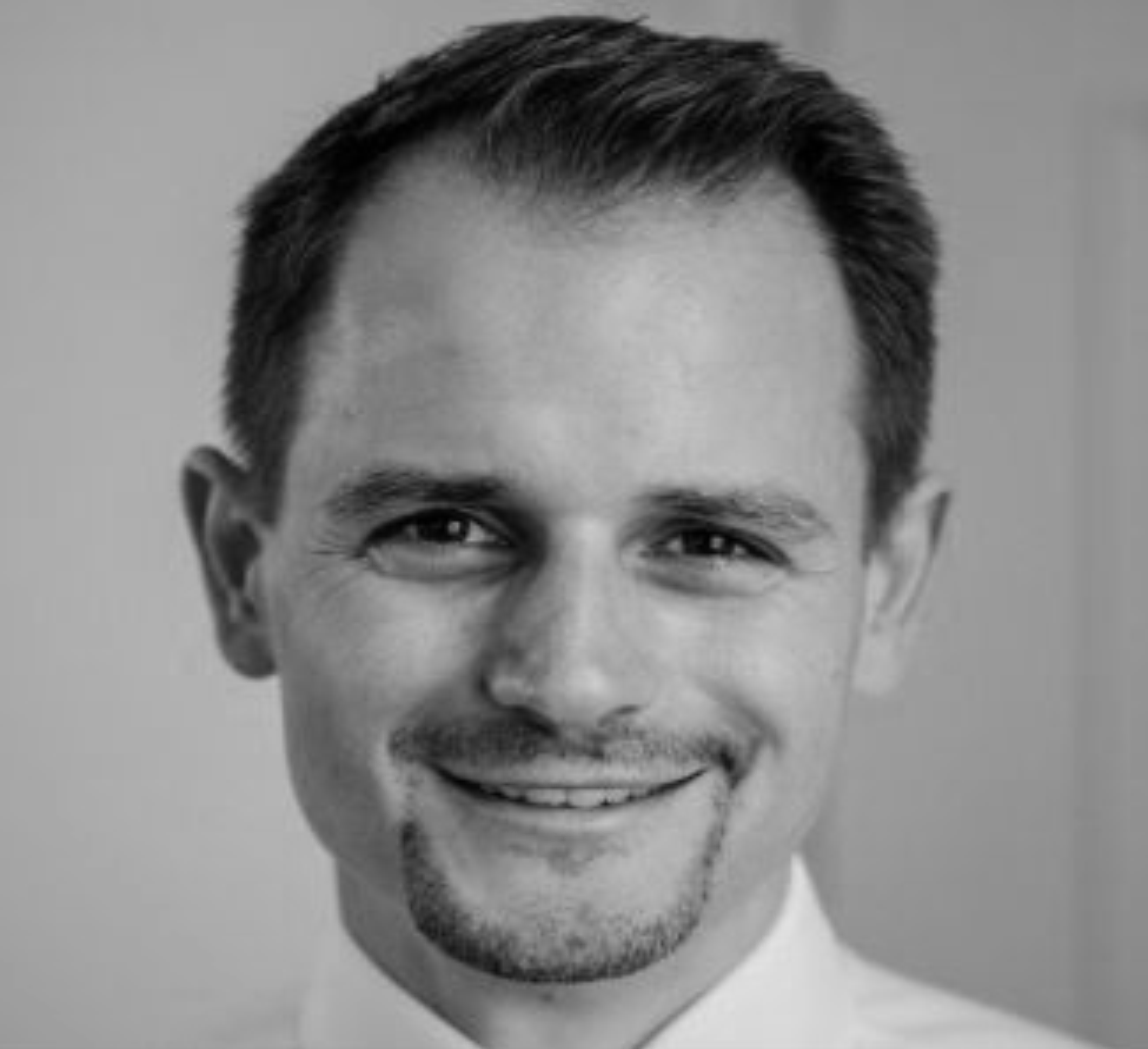143: Jace Subramoney
‘I feel that SAIBA is a great platform to be on.’
Jace Subramoney of Goldline Industries highlights how the responsibilities of the senior finance executive go beyond the bottom line to incorporate a broader social responsibility, ensuring that staff and suppliers were not detrimentally affected during the recent lockdowns.

CIARAN RYAN: Today’s podcast is sponsored by Draftworx, which provides automated drafting and working paper financial software to more than 8000 accounting and auditing firms and corporations. CFO Talks is a brand of the South African Institute of Business Accountants. It’s a great pleasure to welcome today Jace Subramoney, who is Director of Finance at Goldline Industries, that’s a food service company in the hospitality and catering sector. He’s also the proud owner of the CFO (SA) designation, as well as being an associate member of CIMA. He has also completed an MBA through the Gordon Institute of Business Science. Jace has more than 20 years’ experience in a range of sectors from finance to hospitality, catering, IT, energy and electrical switchgear. At Goldline Industries he’s responsible for the administrative, financial and risk management operations of the company to include the development and execution of the financial and operational strategy. Today we’re also joined by Nicolaas van Wyk, who is the CEO of the South African Institute of Business Accountants. Welcome to both Jace and Nicolaas.
JACE SUBRAMONEY: Ciaran, thank you very much, thank you for the introduction.
NICOLAAS VAN WYK: Hello Ciaran, hell Jace, it’s nice speaking with both of you.
CIARAN RYAN: Jace, if we can kick off with you, just tell us a little bit about Goldline Industries, what it does and perhaps give us an indication of the size of the company in terms of staff and revenue.
JACE SUBRAMONEY: Goldline Industries is operating in the hospitality and catering sector. So we’re importers and distributors of soft-serve equipment, which is our flagship product. We’ve been in the industry for more than 20 years. We are also providers of other fast food preparation equipment like coffee machines and beverage coolers. When I say the QSR industry, it’s the quick service restaurant industry. So that’s the field that we particularly play in, it’s hospitality and catering, that’s where we are. Goldline Industries also supplies the equipment, does the maintenance and the service, we provide the spare parts for it as well. Some of our major customers in the QSR industry are McDonald’s and Yum, which are two of the most famous brands and in terms of fast food, Yum is KFC and Pizza Hut. We also service local franchise customers from the Famous Brands stable, which is Milky Lane, Mugg & Bean, Steers, Wimpy, Debonairs and Fishaways. We also have Grand Parade in our portfolio and, as you know, Grand Parade is the holding company for Burger King and Spur. In terms of the size of the company, we have 35 staff members, we have a managing director, it’s a family-owned business, and I am second in charge being the director of finance and operations. We are a small to medium enterprise business.
CIARAN RYAN: It’s an interesting sector to be involved in given what we’ve experienced as a country in the last 18 months or so with lockdowns and so on. Right now, we’re in a level four lockdown, so maybe just explain how business conditions have been over this period of time.
JACE SUBRAMONEY: The QSR industry has been the second hardest hit industry in South Africa after tourism. So the lockdown regulations have really affected us and we have been servicing our customers since level four lockdown opened, which was the first level four, which was in May 2020. The economy had to open at some point and understandably this pandemic is not going to disappear any time soon, but it’s something that we’re going to have to live with and unfortunately, it’s a question of life versus lifestyle, and we’ve had to support our customers in terms of servicing the customers on the street, people who want to buy fast food. Although there aren’t fine dining restaurants, we’ve had to adjust with our customers to meet our stakeholders and what they need.
CIARAN RYAN: Just explain that in a bit more detail, adjusting to what your customers need. If the demand is down, less people are visiting restaurants. One would imagine that the sales are actually dropping, is that correct?
JACE SUBRAMONEY: Considerably, yes, it’s dropped considerably, but businesses have had to open, the economy had to continue. Most of our customers had to resort to takeaways, there were pavement collections, there were deliveries, there was pickup and go. Some of the products that we supply, besides the equipment, like for instance, we import a thermal box from Germany and what it does is it keeps food at ambient temperatures. So it keeps hot, hot and cold, cold. We’ve had to step up on those imports last year because the pizza deliveries suddenly shut up during level four and level three last year, and we’ve had to import that to make sure that our customers had that. So pizza deliveries, nobody wants a cold pizza or customers that had pavement collections, like Nando’s that did pavement collections, we were there to support them in terms of getting them backend kitchen equipment, small wares like tomato slicers, cheese slicers and things like that. So we had to make sure that our customers that needed this product to survive in their business, we were there to provide those products for them.
‘Business has changed irrevocably, it’s forced the restaurant industry, the fast food industry to think out of the box.’
CIARAN RYAN: Would you say that business has changed irrevocably? It’s never going to go back to how it was before, and have you adjusted your business for this new reality in which we find ourselves?
JACE SUBRAMONEY: Yes, business has changed irrevocably, it’s forced the restaurant industry, the fast food industry to think out of the box, if I can put it that way, because normally you would just pick up the phone, call a fast food outlet or do an online order or do it through Uber Eats, and now that all has changed in terms of their service offering, because people don’t walk into a McDonald’s and order a McDonald’s burger, now it’s going through Uber Eats. So we’ve had to think about the reduction in staff for the restaurants, because now you don’t have people serving you, it’s just kitchen staff. When I say it’s changed irrevocably, people have had to play dual roles in that sphere, if I may say so. So whereas you used to be a waiter in a restaurant, you’re now helping and assisting in packaging the food for collections.
CIARAN RYAN: I want to turn to your career as an accountant. Now, I said at the beginning that you are the proud owner of the CFO (SA) designation, which of course is offered by the South African Institute of Business Accountants. I want to understand from you what motivated you to apply for that designation?
JACE SUBRAMONEY: Applying for the CFO designation, I wouldn’t say it’s a pinnacle, but I’d say it’s a stepping stone to my career trajectory. I just felt at that point it cemented my academic qualifications. I had just completed my degree in financial management, I had completed my masters, my MBA at GIBS, like you mentioned earlier on, and I had 20 years of experience behind me and it was financial, but I was taking a step into operationals as well. So at that point, my career was turning with a financial background, but operational as well, and I thought the CFO designation provided by the South African Institute of Business Accountants was a perfect way to get to that next stepping stone.
CIARAN RYAN: Nicolaas, can we bring you in here, I’d like to get a perspective from you on one of the questions that often comes up when we’re talking to CFOs is that there are certain disciplines that are not taught in accounting schools, and this is something that we bring up on CFO Talks quite a lot. Maybe just explain the background because you were very much involved in the birth of the CFO (SA) designation. Tell us a little bit about that and what brought it about.
NICOLAAS VAN WYK: Thanks Ciaran, it’s actually a perfect example that Jace has just given, how the career trajectory changes from purely accounting focus to going into operations and then adding strategy. So when we look at the landscape within the profession, we didn’t really see a designation that reflects that competency and you know, especially these days, how competitive the market is and you need to distinguish yourself from the next person looking for that same position. So we then developed this designation, CFO (SA), and based it on research that was done in Canada by Queen’s University, where they interviewed 500 CFOs to identify what are these core competencies required of a modern CFO. We then registered the designation with SAQA to give it proper registration with government and that’s quite a rigorous process that the South African Qualification Authority goes through on registering designations. They monitor and they audit the professional body to see if you’re sustainable, whether you are following your own processes, whether you keep your members to account, whether you have them do CPD because they realise, as we do, the important role that CFOs play. So although Jace may be working in a particular company, there are many CFOs daily doing a fantastic job like Jace is doing, setting the company on the right trajectory, assisting and redeploying resources, becoming innovative, and that’s necessary for a modern economy because you have to drive revenue, increase profit, reduce cost, all while creating employment. We felt, therefore, that this designation is important, it should be registered. We also then became members of the International Association of Financial Executives Institutes because we don’t want our CFO (SA) to only operate in South Africa, we want them to expand. That has been quite an interesting journey to experience, similar problems but maybe different from a context perspective from one country to the next. Now that Jace is a CFO (SA) there is obviously a next journey that we provide CPD, development and training, we have these networking events, so it’s all been very exciting.
CIARAN RYAN: Jace, I see that you also have an MBA. Did you feel that there was something that you needed in your academic repertoire or armoury that you needed to expand beyond the accounting background that you gained, and was that a need for a better understanding of business that pushed you in that direction?
JACE SUBRAMONEY: Yes, absolutely, Ciaran. When I mentioned my career trajectory, it was only my career at that point before I got into the MBA, my career was only focused on accounting, I come from an auditing background. But in order to understand business operations and get into business operations, the MBA was that perfect tool that I needed to improve my skillset. So whilst accounting teaches you the fundamentals of the principle accounting, generally accepted accounting practices, courses like marketing and economics and statistics, research, business research, HR, strategy, those have all equipped me with a greater understanding of business. I think the CFO designation encapsulates all of that and besides, I’m an eternal student. So that’s what I wanted to do then, and the MBA fitted me at that time perfectly.
Building relationships through lockdown challenges
CIARAN RYAN: I’ve got a question I’d like to probe with you, with all of your training that you have as an accountant, and you clearly are driven, the very fact that you have the CFO (SA) designation, you’re very driven to improve yourself and your skillset. What would you say was the biggest challenge that you’ve had to face in your work?
JACE SUBRAMONEY: Besides the past 18 months, besides trying to keep…if you come down to the grassroots level of running a business, it’s essentially keeping people employed and knowing how important it is, not just for your immediate staff that you keep them employed, it’s the families that you provide for. You have this broader outlook that your customers and your suppliers, and Goldline has been in business for 20 years but the relationships we’ve developed with our customers, with our suppliers, you suddenly start to think about them and their families. I think the biggest challenge I’ve had was working closely with all these stakeholders and trying to tell them, listen, we’re all in this business together, if one of us as a link fails, the other needs to be there to help them. A local supplier, I’ll give you an example, our ice cream machines use V-belts and we purchase them locally, if that supplier is having a problem with importing the rubber or sourcing that rubber to supply us with that, we speak to them and we try to assist them and if we can in some way help them out. It’s not only financial assistance, but it’s also in terms of let’s network together, put our resources together and help each other through this. This pandemic is not going to be leaving us anytime soon, but we’re all going to be together for a long while.
CIARAN RYAN: I can totally understand what you’re saying about the last 18 months being the most challenging time I think for most people. What is also heartening is the point that you just raised, is you’re trying to keep people employed because if you’re just focusing on bottom line performance to make yourself look good and you’re prepared to step over corpse while doing it, I think that’s going to be very hard to justify…
JACE SUBRAMONEY: And it’s short lived.
CIARAN RYAN: Okay, Nicolaas, you have a question you want to ask there.
NICOLAAS VAN WYK: Just in response to what Jace has just said, what I hear from Jace and from the other CFOs who we interview, there’s this need for them to give back and to train and develop, not only their staff, but like Jace now has said, also their suppliers. So that comment that Jace made was amazing. I think it’s something that also came out now with the developments here in South Africa with the upheaval we recently experienced in Durban specifically. I think as CFO it’s an amazing role to play and just maybe a little bit from Jace about how he invests in his staff and how he’s involved in training and development.
JACE SUBRAMONEY: As I mentioned earlier on, our flagship product is the soft-serve ice cream machine, which is supplied from the US, all our staff need that training. You need to be certified to work on that equipment. But in terms of local, we have assisted our staff in refrigeration training, so we do that using a local supplier because you need to understand all the complexities of the electrical and refrigeration system. But more than that, what we have done is…where we are in Linbro Park, we are very close to Alexandra, which we know in the past week or so has also gone through their fair share of unrest and turmoil, but there are a lot of people in Alexandra who fall in the underprivileged community, and what Goldline does is we employ people from there on a part-time basis when we have something like a rollout that has to happen or a big project that we have to service. We enrol people from Alexandra, semi-skilled or unskilled, we give them a little bit of training in terms of how to clean the machines, how to package the machines and distribute that. That’s what we do, not just only for our staff, but for our local community as well, if you want to call it that because of where we are geographically based.
CIARAN RYAN: Just tell us a little bit about yourself now. Where did you grow up? Where did you go to school and how did you end up at Goldline?
JACE SUBRAMONEY: I grew up in KwaZulu-Natal and my hometown has been in the news a lot this past two weeks because I grew up in Phoenix. I attended a school in Phoenix called Earlington Secondary, I’m very proud of them. I spent most of my childhood in KwaZulu-Natal…
CIARAN RYAN: Sorry, before you continue, I think you better just elaborate, you said that Phoenix has been in the news, just explain to people why it’s been in the news.
JACE SUBRAMONEY: With the social unrest, the rioting and the looting, Phoenix has been in the news because it was one of the suburbs targeted by the unrest and I don’t know if it was due to the racial segregation between the different areas because the neighbouring towns to Phoenix are Umlazi and KwaMashu. There was social unrest, but I don’t think it had much to do with race per se, I think it had to do with social injustices. I grew up in Phoenix and there was no racial barrier while I was growing up and different races attended Earlington Secondary when I attended the school. I spent
20 years in Durban, at the age of 21 I moved to Johannesburg and my professional life, my career began in Johannesburg. When I was in Durban, I served an apprenticeship with Transnet but when I moved to Johannesburg I changed my career to finance, I figured that suited me more, business operations and finance is what drove me. I’ve been here for the past 20-odd years.
CIARAN RYAN: Just describe your career since coming up to Johannesburg.
JACE SUBRAMONEY: I joined an auditing and accounting firm called UHY Hellmann in central Johannesburg, I did my articles through them, and I did my degree whilst serving my articles. Once you’ve served your articles, you have two paths that you can follow, either business or you could go into the chartered accountant and follow the accounting, the rules and the structures. For me, corporate, business excited me more, how businesses run, how businesses become sustainable, how they grow and that’s the route I followed. So I went into financial management, I completed my degree with financial management and then I decided on the MBA and CIMA. I have been at Goldline for 15 years and I started off as their financial manager and I was promoted to their financial director about seven years ago.
CIARAN RYAN: Nicolaas, maybe you can just jump back in again, if you’re still there on the line. I think one of the most encouraging things I’ve heard from Jace is this idea of trying to keep his staff employed. I don’t think I can recall many finance executives expressing that in that way, maybe they’re all doing it and they’re just not talking about it, but Jace was very explicit about that. Is this something that you think that we could encourage other CFOs to do is to look at the broader social responsibility that they have?
NICOLAAS VAN WYK: Yes, definitely. We recently hosted an event with the United Nations and SAIBA on the sustainable development goals and one of the goals is having valued employment and valuable employment that’s long-lasting and sustainable. We’ve seen now with the recent looting and one of the sob-texts is obviously the conditions that people live in and having an equitable share of the economic pie. So CFOs, although limited in what they can do, can make important contributions. But I think the main thing always remains how do we make companies run better. Better companies mean more profits. More profits mean more employment and expansion. I recently read the speech by Xi Jinping, the president of China, at the celebration of the Communist Party’s centenary, and you can see that the total focus that they have on getting the nation acting in unison, having a set goal and focusing on that goal, and then getting all the industries aligned to a national goal. That has nothing to do with communism, that has to do with self-confidence and belief to make the world better. But then again, not arbitrarily, very specifically to get people better employment, and I think that’s something we are missing in South Africa. We saw now recently the total chaos and poor response from government in supporting those businesses in the affected areas and we must learn from this because if we don’t have a well functioning state and we don’t have well functioning businesses, then we are really set for trouble. So what we’re trying to do with CFO (SA) is to get all the CFOs in South Africa within a network and behind a designation so that we can then take that role to other countries and share also with them best practice and bring that home again, and make South Africa a winning nation.
‘This is our country; we will work for it, and we will make it better.’
CIARAN RYAN: Jace, are you optimistic for the future? We’ve been talking about what happened last week, there’s riots that have really destroyed parts of the country and destroyed a lot of businesses and shopping malls and things like that. It’s not a very happy time for South Africa, but are you optimistic despite what we’ve been through?
JACE SUBRAMONEY: Ciaran, I wouldn’t say optimistic, I’d say more realistic about the future.
The South African mentality is that we’d like to see a success story, but we are a success story, South Africa is a success story. We have faced huge challenges, besides the pandemic that’s hit the rest of the world, we’ve faced electricity challenges, we’ve faced water shortages, we’ve faced high unemployment, we’ve faced economic volatility, but through all of that, South Africans have the mentality that we will get up and we will work, we will continue to work. This is our country; we will work for it, and we will make it better. As Nicolaas has mentioned, we will be a great nation, we are a great nation. Yes, we have bumps. So I’m more realistic about the future then optimistic. The recent social unrest, these are things that are the bane of our republic. But if I could put down one thing to alleviate this in some way, it would be education. It’s been Nelson Madela month now in July and Nelson Mandela was a strong believer of education, the power of education can help you solve anything. It may not be the key to unlock all the doors or solve all the problems or answer the many questions, but I think therein lies the start in the right direction. When I talk about education, I am talking about education in all forms, in school, tertiary education, business, education, education in the community. I think that is where we should start, take the first step.
CIARAN RYAN: Okay, give us a sense of what do you do in your downtime, do you have a family, are you involved in sports, what do you do?
JACE SUBRAMONEY: I play golf in my downtime, I’m an avid golfer, but not the greatest, still working on bringing the handicap down.
CIARAN RYAN: What is your handicap?
JACE SUBRAMONEY: Oh no…[laughing].
CIARAN RYAN: Go on, tell us.
JACE SUBRAMONEY: I think I am my handicap when it comes to playing golf [laughing]. I’m in the 20s at the moment and I’m trying to bring that down. I think that’s the only way I am going to become a teen golfer is to have a teenage number in golfing. I like to spend quality time with my family and friends. I have two teenage sons and I’ve been married to a wonderful woman for the past 20 years. I like to spend time with them and family. Although I think with the lockdowns, that’s not really permitted to see family, I miss that a lot, but we catch up as much as we can.
CIARAN RYAN: What drew you to accounting in the first place? When you came up from Phoenix to Johannesburg, were you planning on being an accountant or is that something that you slipped into by accident?
JACE SUBRAMONEY: No, funnily enough, like I said, I served an apprenticeship at Transnet and when I moved up to Johannesburg I was in my early twenties, not really sure which direction you want to be in, and I landed this job as a junior admin clerk at an accounting and an audit practice. So I actually didn’t choose accounting, accounting chose me, and I’m so grateful that it did. I’m actually honoured to be in this field. After working as a junior admin clerk for a few months, the owner of the company, Ralph Hellmann, approached me and he said, I think you have the potential to be great in accounting, I think you should sign up for articles. At that time, you could sign up for articles and the degree and do them at the same time, parallel. I’m grateful for accounting because it’s taught me discipline, it’s taught me the importance of governance and risk, and it’s taught me accountability for the decisions you make. These theories, Ciaran, they can be taught in the classroom but to put them into practice, the workplace becomes your classroom, your colleagues become your classmates and management becomes your lecturers. So I’m grateful for being in the accounting sphere.
CIARAN RYAN: Great answer. Are there any books that you would recommend?
JACE SUBRAMONEY: I don’t get to read as many books as I would like to, apart from reading Accounting Weekly and all the business journals. But the book I would recommend is The Power of One by Bryce Courtenay.
CIARAN RYAN: A very famous book, what did you like about that book?
JACE SUBRAMONEY: As a South African, as a five-year-old boy growing up during that time
in Barberton, anybody can relate, it’s not got to do with race, it’s got to do with you as an individual facing adversity and rising above your circumstances wherever you are. That was a very good book for me, I enjoyed that thoroughly. Another book I’d recommend is Outliers by Malcolm Gladwell, I liked that as well because it shows you that there is science behind the art, that there is a way of achieving what you want to achieve, not just saying, oh, look at that person who has got a gift. There is science behind it, you can do it.
CIARAN RYAN: You can learn, you can figure your way out of whatever trap you’re in, basically. Wonderful stuff, thank you so much for joining us on CFO Talks. Nicolaas, are there any final comments or thoughts on your side?
NICOLAAS VAN WYK: No, I’m happy and Jace was very clear in what he explained, I’m very happy to have a person of his calibre as a CFO (SA). I’ll be phoning Jace and maybe we can set up some golf, I’m really looking forward to that.
CIARAN RYAN: Jace, I certainly learnt something today in our conversation and I’m glad that you brought it up, the responsibility that you have as a senior finance executive goes beyond the bottom line and I think that’s a message I’d like to hear a little bit more, I really would. I think you made your case very powerfully and I think we want to share this far and wide. I want to thank you for coming on CFO Talks, giving us your insights, it’s a great story, I think your career journey, your life journey is great. Also, the fact that you came from Phoenix, as you say, it’s been in the news this week, these are difficult times, but it does seem that things are settling down. Do you have family still there? What are the reports that you are getting?
JACE SUBRAMONEY: I have family there and I’ve been in touch with them this past week, we chat almost every day, just to check if they’re okay, if they need anything. But like I said, Phoenix is a community where it takes care of itself. It’s so true…Phoenix rising from the ashes, it’s happened before and will probably happen again, but the thing is strength in the community and they all rally together, take care of each other, protect each other, provide for each other. That’s what I love about Phoenix. Ciaran, I’d like to say thank you to you and to Nicolaas for hosting me and thank you to the South African Institute of Business Accountants for the designation, I really appreciate it. Thank you for this interview and giving me the opportunity to chat to you, but also the opportunity that young professionals have entering the accounting and finance field. I feel that SAIBA is a great platform to be on and I’m very proud to be associated with it.
CIARAN RYAN: Fantastic, I couldn’t have said it better myself. Thanks very much for that, Jace, and we look forward to checking in with you again. I’d love to have you back on. Thank also, Nicolaas, for joining us today.

